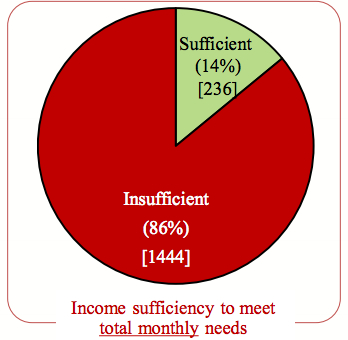Thanassis Cambanis, writing for the Boston Globe about food riots and the dependence on imported grain in Arab countries:
THE ARAB STATES are the world’s largest net importers of grains, depending on exports from water-rich North America, Europe, and Central Asia.
So it follows that bread riots will break out every time there’s a disruption in the global food supply. Anger will bubble up every time there’s a drought. Or when oil profits fall and it becomes harder to pay for grain imports. The Middle East North Africa region consumes about 44 percent of global net grain imports, according to Eckart Woertz, author of “Oil for Food: The Global Food Crisis and the Middle East”: “Self sufficiency is not an option in the region,” he said in an interview.
Still, most scholars now accept the idea first proposed by the economist Amartya Sen, that food shortages and famines are usually caused by political mismanagement, not by an actual lack of food.
I don't think he gets it quite right. Apart from the poorest states, Arab states have largely been able to cover their grain imports – either by spending a lot of their budget on it, or with aid. And the era of regular food riots (even if cost of living – in Egypt for instance a poor household will spend a disproportionate part of its income on food – was part what spurred of the Arab uprisings) is over. Morocco used to have these food riots on a regular basis until the early 1990s, they were often brutally suppressed. The last major for riot in Egypt was in 1977, even if there were clashes over the malfunctioning of bread distribution in 2010-2013. The sharp rise in commodity prices of 2008 was handled in the short-term by these governments, even if it may have contributed to the 2011 uprisings.
In other words, states are actually able to sustain food subsidies. Moreover, there are interest lobbies that want them maintained, particularly since traffic in subsidized flour is lucrative. Better management of bread supplies is clearly needed; and arguably delivering on that makes you popular – in Egypt, since 2011 the army's (partial) takeover of bread distribution was widely seen as successfully putting an end to shortages. The point here is that local droughts are less important than fluctuations in commodity prices and the ability of the state to raise funds to cover these or insure against them, since essentially many of these states import not just their calories but also their water in the form of grain. And that is more sustainable than it seems, because these governments do have access to funding (and it is far more sustainable than spending on fuel subsidies). In fact, droughts may be more important how they impact the agrarian economy than how they affect the food supply – arguably the long drought of the late 2000s in Syria, and the rural-urban migration it caused notably in the north-east, was an important cause of the rebellion there but not because it disrupted food supply at a national level.

